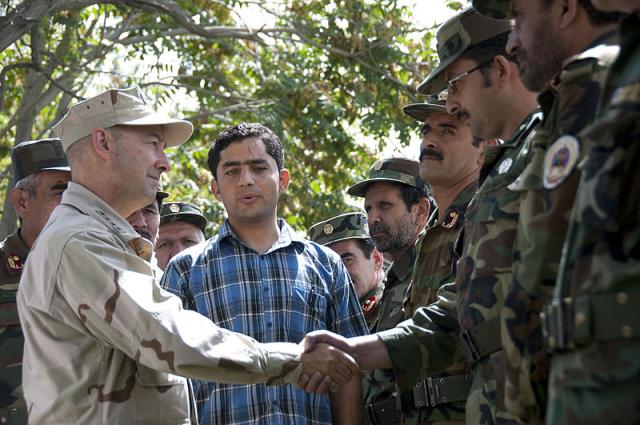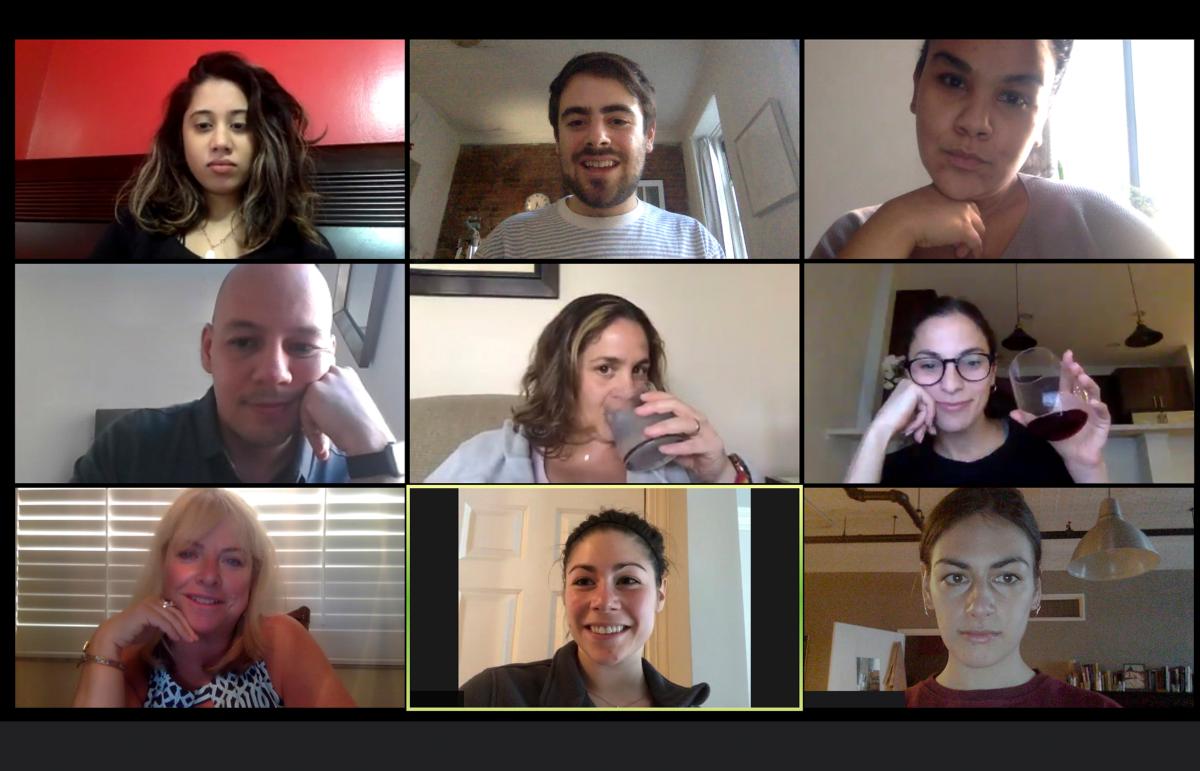By Admiral James Stavridis, U.S. Navy (Retired)
When I was Supreme Allied Commander at NATO, I spent an enormous amount of time on the road. Each year, I would visit each of the Alliance’s capitals a couple of times a year. I’d also go to the nations that were not NATO allies but strong partners in Afghanistan. I did it because I wanted to have a human interaction and to build personal trust with the leaders of those nations and their militaries. In the U.S. military we have a saying, “You can’t surge trust.” In times of crisis, you can surge forces, but you must build trust one interaction at a time.
I’ve been thinking about that recently. As we continue to deal with the effects of COVID-19, many of us are now zooming (pun intended) past the 150 day point away from our offices. For many, the daily commute is just a few feet to a home office, and we have our “Zoom shirts” hanging on the back of the door knob. There is an entirely new rhythm to life via telephonic conference calls, video and facetime chats, and the wide variety of video conference options—Blue Jeans, Zoom, Cisco Webex, Microsoft Teams, GoToMeeting, and many others.
For those in industries where work can be accomplished virtually, there is a seductive quality to this. We “buy back” the cost and time of commuting, dry cleaning, lunches out, and other aspects of heading for the office. Recovered time can be used in so many positive ways—reconnecting with loved ones, exercising, and building intellectual capital from studying a language or reading classic literature. Some firms are thinking about permanent cuts to “in-person” work sites and offering hybrid home/work balance packages to workers. Twitter, for example, has indicated it will allow its workers to continue working from home permanently. Others will surely follow, if for no other reason than to save the significant costs of owning and operating real estate and offices, especially in expensive urban settings.

Admiral Stavridis meeting with Afghan National Army leaders in Afghanistan. (Wikipedia)
But what are we giving up by potentially walking away from the office experience? As Robert Frost famously said, “Poetry is what gets lost in translation.” Are we headed for a world in which face-to-face interaction becomes the exception rather than the norm?
Throughout my seven years as a 4-star combatant commander, I participated in many, many video teleconferences, called “VTCs” in military jargon. They were conducted over highly secure communications systems and would often include sensitive briefings on upcoming operations—from a hostage rescue in Colombia to counter-terrorism raids in Afghanistan. The conferences were useful tools that ensured alignment from the highest levels of government in Washington, D.C. (White House, Secretary of Defense, Chairman of the Joint Chiefs) to the combatant commanders and their components conducting operations around the world. But the shortcomings of VTCs were apparent—and those shortcomings are increasingly part of the business and government landscape today. Leaders should consider them before rushing headlong into this brave new world.
First, there is a real loss of subtle but important physical cues in the VTC world. The inability to measure a person’s body language, enthusiasm, level of intensity, and nuance of behavior is a significant limitation. When briefing the National Security Council staff some years ago on a VTC from Miami about operations in Colombia, I wasn’t able to pick up on the subtle but critical doubts some of the junior staff in Washington felt. I learned of their doubts later from a colleague who had been in the White House Situation Room for the brief, and it ultimately undermined my recommendations. In person, in many situations, we are able to adjust our message and presentation and more fully satisfy our audiences.
Another concern is cybersecurity. While all of the various teleconferencing companies are working to make their apps more secure, all of them are vulnerable to cyber intrusion from hacktivists, cyber criminals, competitors, or foreign governments. Russia, China, North Korea, and Iran all have sophisticated and capable offensive cyber tools that could be employed against U.S. businesses. While it is tempting to use VTC services that are simple and easy to operate, there is no substitute for face-to-face meetings to safeguard the most sensitive conversations. You just can’t do that from home. In the military context, we spent an enormous amount on ensuring cybersecurity for VTCs, but for the most sensitive matters, meetings were face-to-face.
Third, you can’t surge trust. Relationships are built, interaction-by-interaction, over time. At the start of the pandemic, when everyone locked down and started working from home, many companies and organizations were able to continue working well together because team members already knew each other. But think of trust like a bank account: You make deposits into it over years of face-to-face interactions, and you draw on it as you work remotely and rely on video teleconferences. You know the person on the screen, so you can extrapolate from the tiny vision in front of you and understand what they are thinking. Unfortunately, over time, that bank account draws down as new people join the organization, new clients are added, a new outside legal counsel is needed, and fresh opportunities require diligence from another firm or organization that is not a regular partner. I’d say most organizations—whether they be military commands, corporations, non-profits, schools, or universities—have about a year of “trust capital” from preexisting relationships in the bank, but by early 2021, much of that capital will be exhausted.
Finally, we should recognize that humans are generally a gregarious species. Most of us draw energy from the people around us. (There are, of course, exceptions in the broad spectrum of personality.) As a result, working from home may have a highly seductive appeal initially; but over time, the ethos of most organizations will be damaged by a lack of real, in-person, human interaction. There is significant “poetry” in the human relationships that form the fiber and ethos of an organization. As we communicate and work together, we should observe that the poetry is exceedingly delicate, fragile, and can evaporate over time. The military is no exception—we need personal contact, especially in stressful times.
None of this means we haven’t learned powerful lessons that can be applied as we return to a “new normal,” hopefully next year. It seems likely, for example, that less business travel will ensue, and some organizations will offer creative hybrid work arrangements in the time to come. Big conferences may be done virtually at vastly reduced costs. But we must be mindful of the long-term power of in-person interactions—in the military, business, and every field of human endeavor. Poetry matters, and we should not allow it to be lost in translation.

No comments:
Post a Comment